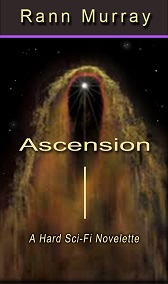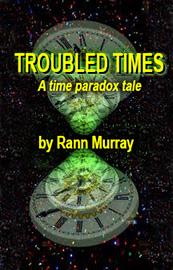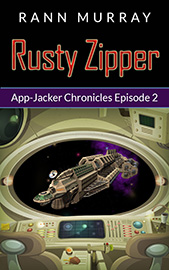Artist Dreaming
Dream your dream of art
Dreams with passion to create
Never waking from its light
Lift your head
Never lay it down
Create your dreams
Paint it, live it, embrace it
Dream what you are
Dream it true
Tonight the dreams are all for you
Jara Son of Ahaz
————————————
I’m trying to form a new writing habit by getting up at 7 am and writing for a few hours when it’s nice and quiet with no interruptions. A side effect of this is that by early afternoon I long for a nap. I try to avoid doing that because I want my new hours to become a normal part of my daily routine. But quite often I give in.
After what just happened during my last nap, I’m not so sure I want to avoid them in the future.
I had a dream. I don’t remember my dreams often, but portions of this one were very clear to me. I was sitting in a chair behind a desk that had a couple of book stacks on either side. On the center of the desk was a tablet on which I was making entries. I looked up and there was a girl in the center of the room who appeared to be around high school age. She was pacing the room in an agitated state. She was of average height, thin but very fit and athletic. Her face wasn’t very clear to me, but she had short blond hair with bangs covering her forehead. Her eyes had dark rings around them as if she hadn’t gotten much sleep. She avoided looking at me while talking rapidly in an angry tone of voice.
She looked familiar enough to make me think this wasn’t the first meeting that we’d had. I was listening intently to what she was saying, like a professional might listen to a client. The focus was all on her. I would say something once in a while in response, but don’t recall anything I actually said.
She was serious and determined to get her point across to me so that I understood her situation or what might be a predicament.
I remember several things she said which went something like this: “Why me, I don’t deserve this, this kind of thing just doesn’t happen. I’m horrible, I couldn’t do that, I didn’t. But I remember that, I must have done it.”
More important than her words, I remember the emotions behind them, the anger, the horror of what she was experiencing. This was close to a nightmare but hadn’t quite crossed over into that realm probably because I was detached from the situation, not wanting to get caught up in it.
She continued talking for awhile and then the dream ended. When I woke up I remember thinking, that was odd. I got up and didn’t think about it anymore, letting my memory of the dream fade away.
Several hours later I had a flash of insight about who the girl was. I knew without a doubt who I had been talking to and I understood why I felt like I knew her. She was a character in a story I’ve been writing for about three months. My character goes through a very horrific ordeal which requires that she regularly see a psychiatrist. In my dream I was playing the role of psychiatrist and she was my client.
I have no doubt she was my character. In the story she is pretty, a star of her volleyball team, boy crazy, and full of teenage angst which matched the girl I was talking to in my dream. She has a right to be angry and refused to sit down because she doesn’t want to give in to any adults because they don’t understand her. Sitting down would be interpreted by her as a capitulation to adult authority.
I’ve dreamt about situations related to my writing before, about a conflict or dilemma in a scene I’m writing, but never a specific character.
I’ve read about other writers who experience characters who appear to them, direct them on what to say next, and almost write the story for them. That led me to wonder what other writers experience in the realm of dreams while trying to finish their current work in progress? I discovered that some of them find their own and others dreams really quite boring and some have had some pretty wild rides in dreamland ranging from hilarious to downright scary.
“All fiction should originate from your dreams, not from your mind.” said Pulitzer prize winning novelist Robert Olen Butler (Had a Good Time, etc.). He was absolutely serious when he said it. He explains the how and why of it in his 2006 book ‘From Where You Dream: The Process of Writing Fiction’ which also includes links to videos he prepared on the subject.
Stephenie Meyer woke up from an intense dream where two young lovers were lying together in a meadow and wrote ‘Twilight’. Mary Shelley saw Frankenstein’s monster in a dream and started writing about the circumstances under which he was created. The concept for ‘Sophie’s Choice’ was such a powerful dream that the author dropped everything he was doing to capture and write down that vision.
‘Salem’s Lot’ by Stephen King includes a nightmare he had as an eight year old child about a boy who saw a man hanging from a gallows who reached out to grab Stephen as he came closer. The boys in the basement, as Stephen likes to call the inner wellspring of his stories, were very busy when he wrote ‘Misery’ which was launched from a dream about a woman who held a writer prisoner, killed him and fed his remains to her pet pig. In fact, he claims that when he sits down at the beginning and end of a writing session, he is aware that he is writing. But the middle part is where things get interesting. This is his semi-dreaming state where the world is gone and he can remember forgotten things, where writing is like an adult version of a child’s high speed flip book that you can mix and match for an almost unlimited number of events, personalities and things.
Isabel Allende, an international author (House of Spirits, Ripper, Island Beneath the Sea), refers to this semi dreaming place where you can finally listen; as if you had a storage room where you have information that can’t be reached when you’re awake. But the information isn’t just in her mind, it is more like it was drawn from the air and was always there for the taking if one can find a way to tune it in. Sounds as if she’s talking about a storehouse of knowledge that’s free for the taking if you know how to access it, sort of like a collective memory or consciousness maybe.
Clive Barker (The Great and Secret Show, Hellraiser, Books of Blood, Weaveworld) views himself as being in a kind of dream state during most of his writing sessions. He talks to himself, seldom blinks (which is why he can’t wear his contacts while writing), and long stretches of time pass without his being aware of it. Sounds like he might be kind of shocking to look at while he’s in this kind of zombie like state. Clive believes that each of us is capable of entering another state of consciousness sometimes through dreams, sometimes though art or sex, where we experience something outside of ourselves, something just as validly real as the earthly plain that we normally occupy. During these times we can experience a learning or healing from ideas and images and from the spiritual presence of others alive, dead, or journeying like we are.
Spalding Gray, actor, creator of popular monologues, and novelist thinks that dreams are often nothing more than stuff that is in the air, like radio waves that we tap into and intermingle with.
Hm, sounds like we have a trend going here. Semi-dreaming state, collective memory, kind of a oneness that we all share.
Do I believe any of this? Yes I do. Scientists are beginning to explain the flow of time as being caused by particles entangling with surrounding particles in their environment in an attempt to achieve an equilibrium state. If that’s how time functions, it’s a short step (although at this point not a scientifically provable one) to believe that human consciousness can ‘entangle’ as well forming a kind of external collective. Some of us may be more tuned in to this entangled collective than others perhaps with the ability to access it voluntarily or involuntarily. Maybe our human aging is nothing more than the particles that make us up trying to achieve equilibrium with their environment. Maybe as we begin to understand how the process of entanglement works, by trying to create useful generalized quantum computers, we may be able to speed up or slow down the entanglement itself and thus speed up or slow down ________ (time, aging?). You fill in the blank.
Maybe we’re getting a little sidetracked here, but are we really? Sharing you dreams with your significant other is one thing but actually sharing the same dream is another. The first person in modern times to document telepathic dreaming was none other than Sigmund Freud. He produced a model to express his ideas about telepathic dreaming and in 1922 wrote a paper called ‘Dreams and Telepathy’. How does that happen? Is it a form of telepathy? Is it an external source that is tuned into allowing subconscious communication somehow? Or is it a form of entanglement? And when we dream alone, is it a totally internal thing from our subconscious that we experience or is it in some part tied in with our environment or our external world?
Well, whatever is going on, I’ve only scratched the surface. Dream writing is a common occurrence for a multitude of writers. Maybe good writing is nothing more that finding a way to govern your dream life while awake by entering a semi dreaming state and recording you dreams immediately after waking up and maybe even orchestrating them by thinking about your story or characters just before you go to sleep so your subconscious can do the heavy lifting.
 In fact, in his books and lectures Pulitzer Prize winning author Robert Olen Butler states that in order to write well you have to go to the place where you dream even if it’s a very, very scary place.
In fact, in his books and lectures Pulitzer Prize winning author Robert Olen Butler states that in order to write well you have to go to the place where you dream even if it’s a very, very scary place.
You have plenty of defense mechanisms to keep you out of there, but you have to defeat them if you ever expect to create a work of art. Support for this concept comes from science which has determined that the kind of brain wave patterns you emit while you are creating is very similar to your brain patterns during sleep.
Some people believe that when you dream of a fictional character your subconscious is signaling that you are on the verge of an important discovery or perhaps an impending doom. Hindus say that if you dream of birth, then death of a family member or friend will soon follow. And the reverse is true: birth means death. All Hindus have been taught that life is a dream and you only reach salvation when you extinguish that illusion and become one with the cosmic soul.
I’ve never practiced lucid or guided dreaming but I can’t count the number of times I’ve been struggling with a problem regarding writing or something else and come up with the solution in the middle of sleeping or first thing the next morning. So a safer bet for me is that the dream about my character was my subconscious trying to assist me in sorting out who this character really is or could be so that I can carry the story forward. My dreams are more like a problem solving machine that helps work things out that I can’t resolve during the day. And when I wake up I have the solution that my dreams have worked out for me. At least that’s one interpretation of ‘reality’. So give it a try. Write down your question or conundrum on a piece of paper and tuck it under your pillow before you go to sleep. You may actually dream up an answer.
Since I’ve started writing this article, I’ve had two additional dreams that have actually proved useful in my writing. I hope this is a trend. The first dream involved a mentally challenged adult who was attempting to walk to a destination where he could be with some people he thought were his friends but was being discouraged by his peers and by the people who seemed to be his caretakers (parents perhaps). He finally broke away and ended up having a wonderful time with this group who were siting in an outdoor restaurant with a very festive atmosphere, the kind you might find in New Orleans during Mardi Gras.
The second dream, which seemed to come in two parts, was about a woman who was very attractive but never seemed to be able to sustain a permanent relationship. One night she finds a young boy about eight years old knocking on her door who is seeking asylum from his abusive alcoholic parents. She and the boy develop a bond over the next year and a half and she eventually ends up adopting him after the parents give up their parental rights.
Both the mentally challenged man and the woman who adopted the boy are going to appear in a novel I’m currently working on.
Then, of course, there is always the concept that characters you invent in your dreams are conscious entities in and of themselves. Who knows, if they’re developed enough, they may dream about you. And if they do, what happens to you when they wake up? Lewis Carroll summed it up nicely in ‘Through the Looking-Glass’ when Alice is having a conversation with Tweedledee and Tweedledum:
“He’s dreaming now,’ said Tweedledee: ‘and what do you think he’s dreaming about?’
Alice said ‘Nobody can guess that.’
‘Why, about YOU!’ Tweedledee exclaimed, clapping his hands triumphantly. ‘And if he left off dreaming about you, where do you suppose you’d be?’
‘Where I am now, of course,’ said Alice.
‘Not you!’ Tweedledee retorted contemptuously. ‘You’d be nowhere. Why, you’re only a sort of thing in his dream!’
‘If that there King was to wake,’ added Tweedledum, ‘you’d go out—bang!—just like a candle!”
My dream gave me a better understanding of my character and how she would react to events and situations she encounters in the story. It just makes her more legitimate in my mind like I’m actually writing about a person that could exist in reality. I hope this gets to be a regular habit.
Call it what you want. Dream state, self hypnosis, or the golden place, a good share of successful writers claim that you have to find your own special way of getting there if you’re going to be an exceptional writer. It’s like saying that writing springs from a guided dream. Imagine that. All of your effort, your energy, your extemporaneous ideas happen on their own, somewhat beyond your ability to control them. If that’s true, then you can’t impose your will on the writing. You must let things run free and respect what your dream state is telling you.
If you’re wondering what my story that I talked about earlier is about, let’s just say it’s a SF story about a teenager, a CDC investigator, a university researcher and a serial killer. It’s been story boarded, the beats are done, and I’m close to finishing the first draft. Maybe it will make the leap off my hard drive to actual publication.
Of course, having characters you are writing about appear in your dreams can have its downside. What if the next character I encounter is the serial killer. Not sure how I would deal with that. Hopefully I’ll play the part of the cop who nabs him and not one of his victims.
For those interested in pursuing this topic further, there are two books on which part of this article was based which I would highly recommend: ‘Writers Dreaming by Naomi Epel will give you an idea of how writers not only make use of their dreams but a lot of intimate details about their writing process and ‘From Where You Dream: The Process of Writing Fiction by Robert Olen Butler’ will teach you how to enter and make use of the dream state for more effective writing and why ditching your writing journal and keeping just an emotional journal is so important.
Have you ever written anything that was inspired by a dream?








I was up at 3am the other day writing down a dream I had that I knew would make a brilliant concept for a story. It was so cool and I knew that if I didn’t write it down there and then, it would be gone by the morning.Trouble is, I now can’t find my notes.
I know the feeling. What I do now is set a digital voice recorder next to my pillow that I can grab to record any dreams and also to make sure I don’t forget any thoughts regarding my current work in progress. I’ve had some sleepless nights doing that but luckily those are infrequent.
Very interesting article. Artists can glean a lot from their dreams too.
Absolutely. Many artists have applied these techniques either directly from dreams or by entering a dream like state to produce their best work including Salvador Dalí, Picasso, Vincent van Gogh and countless current and past artists who have produced dream based art.
Very insightful article. Dreams really do need recording devices, don’t they? Nightmares, too…
Thanks Grimwain.
Yes, if I didn’t have my recorder next to my bed I wouldn’t remember a single one.
Hi, i believe that i saw you visited my site so i got here to return the favor?.I’m attempting to find issues to enhance my
site!I suppose its good enough to use some of your ideas!!